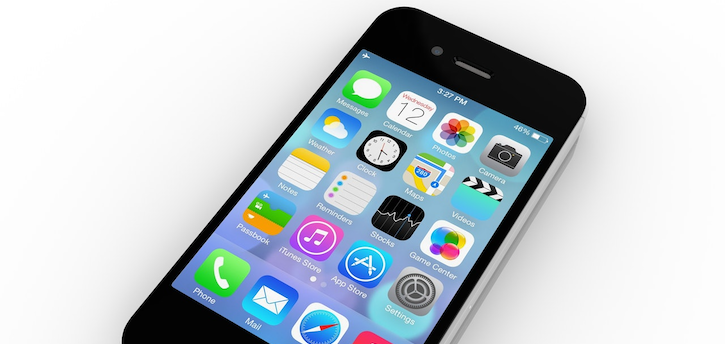Apple, Eli Lilly Study Looks for Dementia Signs in Device Use
Slower typing and more helper apps could hold clues, researchers find.

The slip of a finger across a touch screen, slower typing, fewer text messages, and greater reliance on apps to keep track of time and place. Could these tiny digital details hold some clues to declining mental acuity?
Big data looks into the device use of a group of seniors showed some indications that the early warning signals of mild cognitive impairment and even early Alzheimer’s disease dementia may be detectable in behaviors lasting from fractions of a second, to days-long patterns.
The research, presented Thursday at the SIGKDD conference in Alaska on Thursday, is the first public partnership between two giants: Apple and Eli Lilly.
“The near-continuous passive data collection of sensors in mobile devices and other consumer technologies… may have the potential to transform our ability to detect and track cognitive decline with minimal intrusion and burden,” write the authors, from Apple and Lilly, and also Evidation Health, a health research and measurement company based in California.
The study results tracked 113 people (31 with cognitive impairment, 82 without) over 12 weeks. The participants, ages 60 to 75, were given an iPhone 7 Plus, an Apple Watch Series 2, an iPad Pro, and a Beddit sleep monitoring device, according to the paper. All came loaded with monitoring apps.
Each of the subjects, using the devices in their sleeping and waking routines, generated 1.5 GB of data daily — amassing a total 16 TB during the course of the study, the findings state.
The participants were also asked to take quick surveys about their mood and energy levels, and do simple language and psychomotor tasks like dragging and tapping into the devices, among other metrics.
The observations were mapped into “behaviorgrams,” which also incorporated the number of steps taken, stairs climbed, amount of exercise, heart rate, and what distance they traveled from home, among other factors.
Models were trained with the Extreme Gradient Boosting algorithm, which created decision trees. The data was augmented and then measured using the Area Under the Received Operating Characteristic (AUROC) curve.
Among their findings: slower typing and less routine behavior among the symptomatic group; fewer text messages received; a greater reliance on help applications like Siri; and less responsivity to the daily one-question surveys from the symptomatic, as opposed to their healthy counterparts.
The three companies said the work shows early promise for future breakthroughs.
“We are excited to work alongside Lilly and Evidation in supporting the research community, as they seek to discover digital biomarkers of cognitive impairment,” said Myoung Cha, J.D., MBA, the head of health strategic partnerships at Apple.
“The results of the trial set the groundwork for future research that may be able to help identify people with neurodegenerative conditions earlier than ever before,” said Nikki Marinsek, Ph.D., first author, a data scientist at Evidation.
“While further research is needed, the study findings provide important insight into the potential benefits of wearable devices in deidentifying chronic health conditions such as (mild cognitive impairment), Alzheimer’s disease, and dementia,” added Divakar Ramakrishnan, Ph.D., Eli Lilly’s chief digital officer.
Get the best insights in digital health directly to your inbox.
Related
Apple Introduces mHealth App for Women to Track Menstrual Cycles, Fertility
Major Study to Track Whether Apple Watch Can Help Improve, Predict Patient Health
Model Predicts Cognitive Decline in Patients with Alzheimer's
Podcast: Adoption of Healthcare Tech in the Age of COVID-19 with Dr Kaveh Safavi
June 22nd 2021Kaveh Safavi, MD, JD, global health lead of Accenture Health, discusses how the pandemic influenced the speed at which healthcare organizations adopted new technologies and how this adoption is impacting patient care.